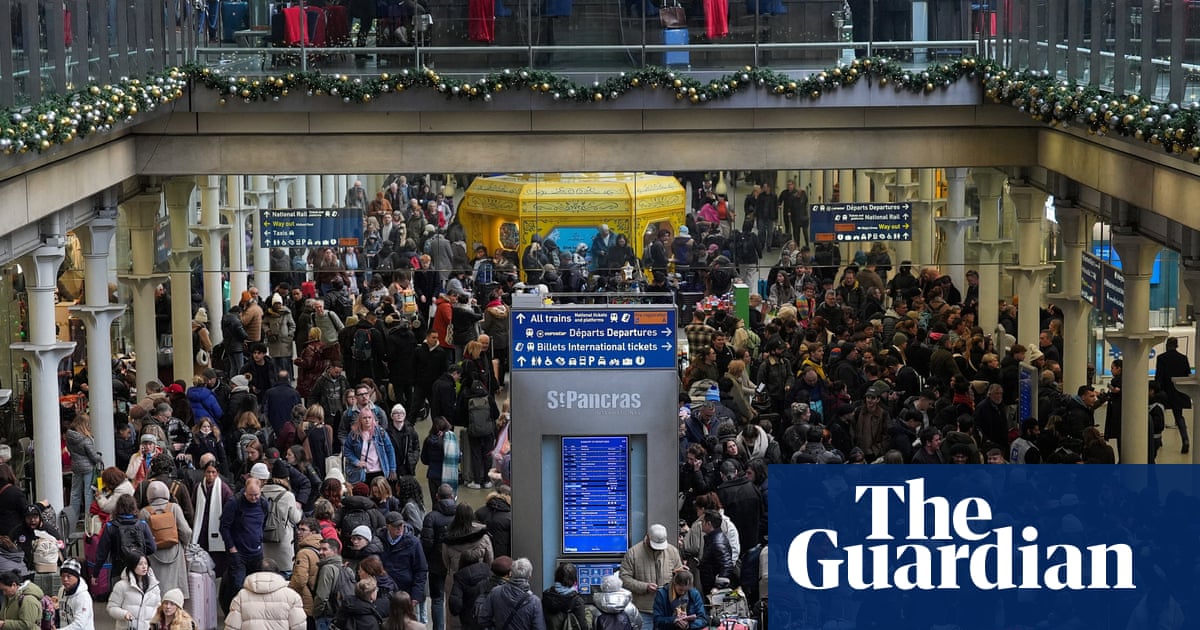Rachel Reeves has blamed a heavier than anticipated blow from Brexit and austerity for forcing her to take action to balance the books at next month’s autumn budget.
Speaking to business leaders in Birmingham at the government’s first regional investment summit, the chancellor said leaving the EU had caused more damage than official forecasts had previously outlined.
Hinting that she was braced for a sharply downgraded growth forecast at next month’s budget from the Treasury’s independent watchdog, the Office for Budget Responsibility (OBR), Reeves said action was needed.
“We also know – and the OBR, I think, are going to be pretty frank about this – that things like austerity, the cuts to capital spending and Brexit have had a bigger impact on our economy than was even projected back then.
“That is why we are unashamedly rebuilding our relations with the EU to reduce some of those costs, that in my view were needlessly added to businesses since 2016 and since we formally left a few years ago.”
However, in an interview with the Guardian on the sidelines of the conference at Edgbaston cricket ground, she said Labour could “defy the past and do better”, because the government was prepared to rebuild relations with Brussels, slash planning regulation and invest in infrastructure.
“It is why I am putting so much emphasis on growth and productivity, because the numbers have been really bad in the last decade and a half, and I am determined to turn that around.”
Reeves is widely expected to announce a package of tax increases and cuts to spending at the budget on 26 November in response to a shortfall in the government finances that could reach up to £40bn.
The Treasury watchdog is understood to have handed sharply downgraded productivity forecasts to the Treasury as Reeves draws up her tax and spending plans, adding to damage from soaring borrowing costs and the financial hit from the government’s high-stakes welfare U-turns.
Speaking to an audience of 350 business leaders, regional mayors and investors on Tuesday, including HSBC, Lloyds Banking Group, Legal & General and KPMG, Reeves warned that any shortfall in the public finances would require immediate action to address.
Hinting that any measures in next month’s budget would at least rebuild her headroom against her self-imposed fiscal rules, she said: “I will ensure that the sums add up; that we have that buffer against future shocks.”
At the spring statement in March, Reeves kept £9.9bn in reserve against her main fiscal rule, which requires day-to-day spending to be matched by revenues by the end of the current parliament.
The chancellor said that failure to take corrective action could trigger a negative reaction in financial markets, drawing parallels with Liz Truss’s ill-fated-mini budget in September 2022.
after newsletter promotion
“If we came out of the budget with plans that investors in government bonds and financial markets recognised didn’t add up, we will see what happened to Liz Truss and [the then chancellor] Kwasi Kwarteng happen again, which is borrowing go up for consumers and businesses.”
However, Reeves argued Labour would take an approach distinct from previous Conservative administrations by prioritising investment in long-term infrastructure – ruling out austerity to lay the foundations for stronger growth in future. The chancellor also said cutting business regulations and planning rules was a priority to spur economic growth.
“The reason we’ve got low growth today is they cut capital spending in the past, and we’re paying the price for that today,” she said.
Reeves told the Guardian that her budget would rule out any cuts to long-term infrastructure spending, saying that spending on transport infrastructure, energy and other productivity-enhancing measures was vital for drawing in private sector investment.
She said the decision to rule out cuts to capital investment was only possible because of the changes she made to her fiscal rules last autumn, which included separating requirements for the day-to-day budget to allow the government to borrow to invest.
“I know I get a lot of criticism for [the fiscal rules], but without those changes, I wouldn’t be able to sit here and say the capital budget is protected. And it absolutely is.”

 2 months ago
52
2 months ago
52

















































